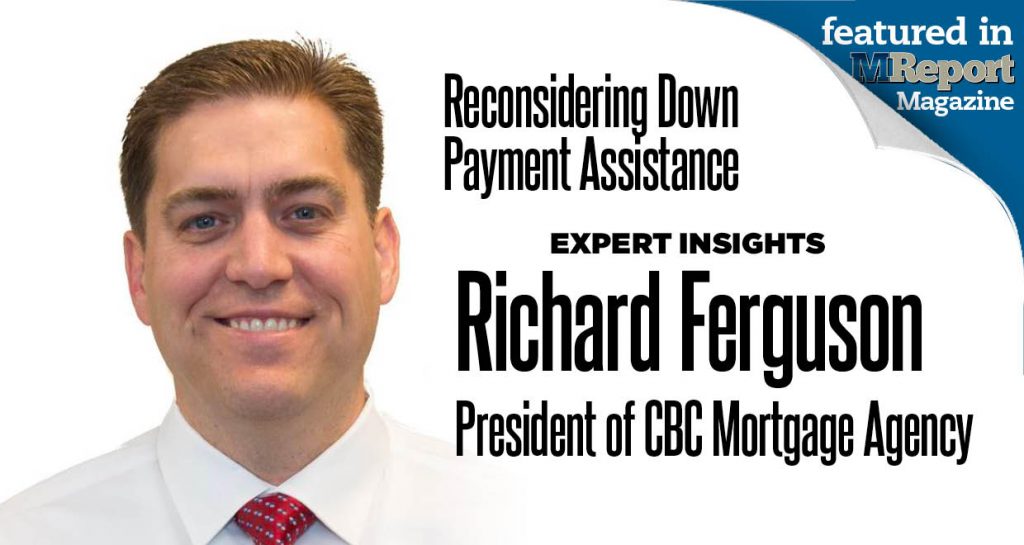
Editor's note: This story originally appeared in the December edition of MReport.
Richard Ferguson is the President of CBC Mortgage Agency (CBCMA), having joined the company in 2014. Ferguson began his career as a successful loan officer at Wells Fargo, and later, focused on helping first-time homebuyers bridge the largest hurdle to homeownership: securing down payment funds.
Ferguson operates the Chenoa Fund, provided through CBCMA, which is a federally chartered government agency. CBCMA’s mission is to increase affordable and sustainable homeownership, specifically for creditworthy, low- and moderate-income individuals. To date, CBCMA has helped over 22,000 people nationally receive the funds needed to buy a home.
Ferguson recently spoke with MReport about the ways he and his team are "leveraging technology" in the era of COVID-19, as well as how they’re working to change the perceptions surround-ing down payment assistance.
M: What are the primary challenges your team has faced this year, or that you're anticipating as we head into 2021?
Ferguson: There are two main challenges our company is dealing with. I'll give you an external one and an internal one. Internally, leveraging technology is probably our biggest challenge. We need to increase the productivity of all of our employees. Given the difficulty of hiring in the industry right now, it's tough to find qualified people to help. So, we're working hard to leverage the technology in order to be able to increase productivity and also to be able to support people working remotely.
Externally, our biggest challenge is working to change public and regulatory perceptions regarding down payment assistance. There are those who believe the down payment assistance is a riskier type of product, [due to the assumption that those who receive it will not have] skin in the game, so they're going to perform worse when it comes to loan performance as time goes on. There is a study that was performed recently and published through Harvard, that talked about how down payment assistance—by itself as a risk factor—does not make a difference upon loan performance. Other types of factors can, such as FICO score, debt-to-income areas, and so on. Trying to change that perception that down payment assistance, in and of itself, is not a riskier aspect—that's our biggest challenge externally.
This is a time when we need to be spending as much effort as we possibly can on helping minorities be able to achieve homeownership and having assistance programs like the Chenoa Fund are critical to being able to achieve that. Roughly 55% of the people we help in our company right now are minorities. So, those are the two challenges that we're dealing with. We're trying to educate the market about how important programs such as ours are within the system.

 theMReport.com Your trusted source for mortgage banking news
theMReport.com Your trusted source for mortgage banking news








